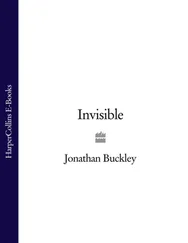1 ...7 8 9 11 12 13 ...29 Every sense was satisfied in these crowded shops, and a dense residue of memories was left in Alexander’s mind by the mornings he spent in them. Forty years later, looking at the maritime souvenirs that filled the window of what had been the grocer’s, he could hear above the traffic’s growl the crunch and chime of the ancient cash till, and he saw again the brass plate on the front of the till, and the comical bulbous faces mirrored in its embossed lettering. He saw the counter of the chemist’s shop, with the dimpled metal strip on its front edge that looked like a frozen waterfall. His fingers touched the window as he remembered how he would stroke the old wooden drawers by the chemist’s counter, sweeping his fingertips slowly across the varnished scars that looked like the script of an unknown language. The scurf of stinking pink sawdust in the butcher’s shop returned to him, and the sun shining off the slanted glass that covered the white trays of kidneys in their little puddles of brown blood. And standing before the Cutty Sark, gazing up through its spars at the coalsack-coloured October sky, he sensed the elation that arose instantly in him one morning, when he arrived at the head of the queue to see, displayed in a wicker basket, a heap of fat oranges that had come from Spain.
Only if his friends took him off to play would Alexander leave his place. ‘Bad news I’m afraid, Mrs MacIndoe,’ Eric Mullins joked, twirling the horns of a phantom moustache as he brought his heels smartly together. ‘We need your son.’ The company behind him – Lionel Griffiths and Gareth Jones and Davy Hennessy, whose leather-trimmed beret would last far longer than any other aspect of his appearance in Alexander’s memory – nodded their regretful confirmation that this was so. ‘Beastly business,’ said Eric, jamming his spectacles tight to the bridge of his nose with a forefinger. ‘Sorry and all that.’
‘Very well. Dismissed,’ his mother replied solemnly, lowering her chin, and they ran around the corner to Mr Mullins’ pub.
Entering by the door marked ‘Private’, below the white plaster unicorn with its scarlet crown, they bounded up the back stairs to the empty top floor, where each of the rooms had no furniture nor any curtains or carpets, but had a washbasin with taps that did not work. The rooms were connected by a corridor that curved like the tunnel under the river, and up and down its lino they would smack a tin of snoek wrapped in a sock, using cricket bats for hockey sticks and aiming for the swing doors that led to the stairs. Or in their stockinged feet they would skate along the lino rink, and their feet would make a hissing noise that Alexander, looking down the corridor at the two blind eyes of the windows in the doors, once imagined as the building’s breathing, an idea that so absorbed and unsettled him that he was startled when Lionel Griffiths, slithering to a stop behind him, shouted in his ear: ‘Wake up, Alex. Park time.’
In the park, at the side of one of the hills, there was a miniature valley in which the grass grew long between untrimmed bushes, and there they would stalk each other, descending the slopes on their bellies. When the others had gone home Alexander would stay for a while in the overgrown gully, and lie unseen within earshot of the path and listen to the talk of the people trudging up the hill towards the Heath. And when there was time he would then go to the place he called the Doodlebug House and continued to call the Doodlebug House even after his father told him it was not a doodlebug that had wrecked it but incendiaries and a broken gas main, many months before the flying bombs arrived.
A flap of corrugated iron, daubed with Danger – Keep Out in wrinkled red paint, was the door to the ruin. The four outer walls still stood to the height of the gutter, framing a square of sky, and within the walls were piles of debris, embedded with fractured joists and floorboards and laths that were like the ribs of a scavenged carcass. Against one of the walls leaned a huge tent of roof tiles, protecting a mantelpiece that had not been damaged at all. A perpetual stink of damp plaster dust and cats and scorched wood filled the Doodlebug House, and silvery ash was in every cranny. Low on the walls were stuck little rags of ash that vanished when he touched them. A book with leaves of ash trembled under the block of the toppled chimney. A skin of ash, pitted by raindrops, covered the door that lay flat in the middle of the house. Lumps of ash like mushrooms lay around the sheltered cradle of broken boards in which Alexander would recline and watch his portion of sky, hearing in his head the doodlebug’s misfiring snarl and then the thrilling moment of silence before it plummeted, a silence that excited him like the moment before he let himself drop from the empty window into the pool of torn bedding and sodden clothes at the back of the Doodlebug House.
Ash as slippery as sleet coated the joist by which Alexander would climb to the window at the side of the house, to sit between the battens that had been hammered crosswise into the empty frame. There, hidden from view, he would watch the people in the street pass by, or take out his Tales from the Bible, and read the story of the walls of Jericho or the Tower of Babel. Every time he came to the Doodlebug House he would go up to the window, until the day that Mrs Darling walked by and, without raising her head, called out ‘Be careful up there, Alexander’ and waved her hand behind her as if fixing a headscarf that had become unknotted. In later years he would often recall his lookout in the Doodlebug House, but most frequently he would revisit the part of the building that had once been the kitchen. Beached on a hummock that bristled with fractured pipes, there was a bathtub in which he sometimes dozed, and ten feet or so from the bath, wedged into the stump of the stairs, there was a wardrobe door that had a mirror fixed to it. The mirror was cracked from top to bottom, and the door was set at such an angle that, as Alexander neared the top of the hummock, he would find a place from which the mirror showed the wreckage to his left and to his right, but did not show any image of himself. Perched on a raft of wallpapered plywood, his arms held out like a tightrope walker, he stared in fascination at the reflection of the ruin, experiencing the smells and sights and sounds of the Doodlebug House, while apparently invisible. And he remembered that as he squatted on a beam and surveyed the rubble, a sadness seemed to flow through his body, a sadness that seemed to strengthen and purify him, to raise him out of his childhood for as long as it lasted. He was the guardian of the house’s relics, and such was his care for them that fifty years later he could draw a plan of the craters and barrows of the Doodlebug House, mapping the resting place of every item. Behind the bath there lay a washboard with barley-sugar glass rods that had not even been chipped by the blast; beside it was the brown canvas camera case that had been chewed by mice, and the cookery book with the spine that was a strip of bandage clogged with brittle glue. Closer to the wall there was the black iron mincer with its heavy crank attached, and the mangle with hard blue rubber rollers, and the soggy cartons of bandages and rusting nails. Some days he would touch one of the relics or raise it on his open palms and close his eyes, and Mr Fitchie would sometimes appear and look at him, as if across a river.
Neither would he forget the only time he ever took anyone to the Doodlebug House. Mrs Evans was with them, wearing the big silver brooch in the shape of a sleeping cat, and her green felt hat with a pheasant’s feather tucked under its band. They were at the butcher’s shop, and Mrs Evans made up another rhyme: ‘What a peculiar thing to do, to spend all day in the butcher’s queue, and all for a sausage, or sometimes two.’ When a man behind them started swearing, Mrs Evans cupped her fingers over Alexander’s ears. ‘For what we’re about to buggering well receive may the buggering Lord make us buggering grateful,’ said the man, and from the sly way Mrs Evans looked at Alexander he could not be sure if she had not meant him to hear. Then Mrs Beckwith turned up with Megan, who was holding the shopping bag in front of her, gripping its handles in both fists as if carrying the bag was a serious undertaking.
Читать дальше











